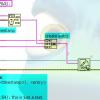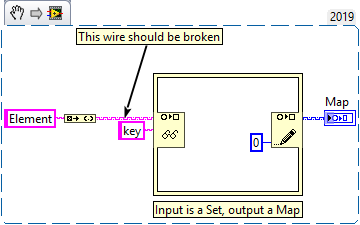Search the Community
Showing results for tags 'set'.
-
I discovered a potential memory corruption when using Variant To Flattened String and Flattened String To Variant functions on Sets. Here is the test code: In this example, the set is serialized and de-serialized without changing any data. The code runs in a loop to increase the chance of crashing LabVIEW. Here is the type descriptor. If you are familiar with type descriptors, you'll notice that something is off: Here is the translation: 0x0008 - Length of the type descriptor in bytes, including the length word (8 bytes) => OK 0x0073 - Data type (Set) => OK 0x0001 - Number of dimensions (a set is essentially an array with dimension size 1) => OK 0x0004 - Length of the type descriptor for the internal type in bytes, including the length word (4 bytes) => OK ???? - Type descriptor for the internal data type (should be 0x0008 for U64) => What is going on? It turns out that the last two bytes are truncated. The Flatten String To Variant function actually reports error 116, which makes sense because the type descriptor is incomplete, BUT it does not always return an error! In fact, half of the time, no error is reported and LabVIEW eventually crashes (most often after adding a label to the numeric type in the set constant). I believe that this corrupts memory, which eventually crashes LabVIEW. Here is a video that illustrates the behavior: 2021-02-06_13-43-58.mp4 Can somebody please confirm this issue? LV2019SP1f3 (32-bit) Potential Memory Corruption when (de-)serializing Sets.vi
-
Here is another bug I discovered in LV2019+ which reliably crashes LV. Simply connect a set to the map input of the Map Get / Replace Value node on the IPE: This VI is executable in LV2019 SP1 f3, which means that you can actually build that into an executable without noticing. I have reported this, but there is no CAR yet.


PotentialMemoryCorruptionwhen(de-)serializingSets.png.e31ac61a8ef3ee1d71ad471d67565015.png)

